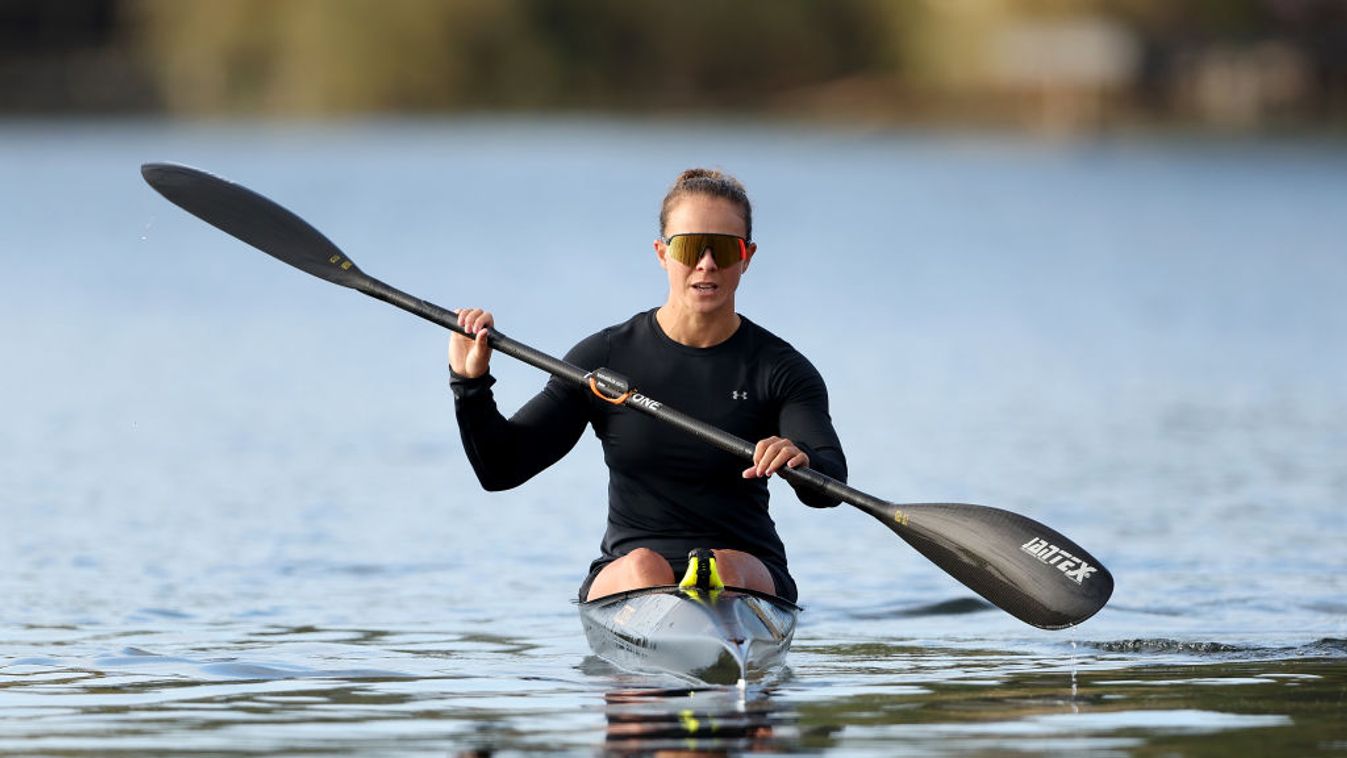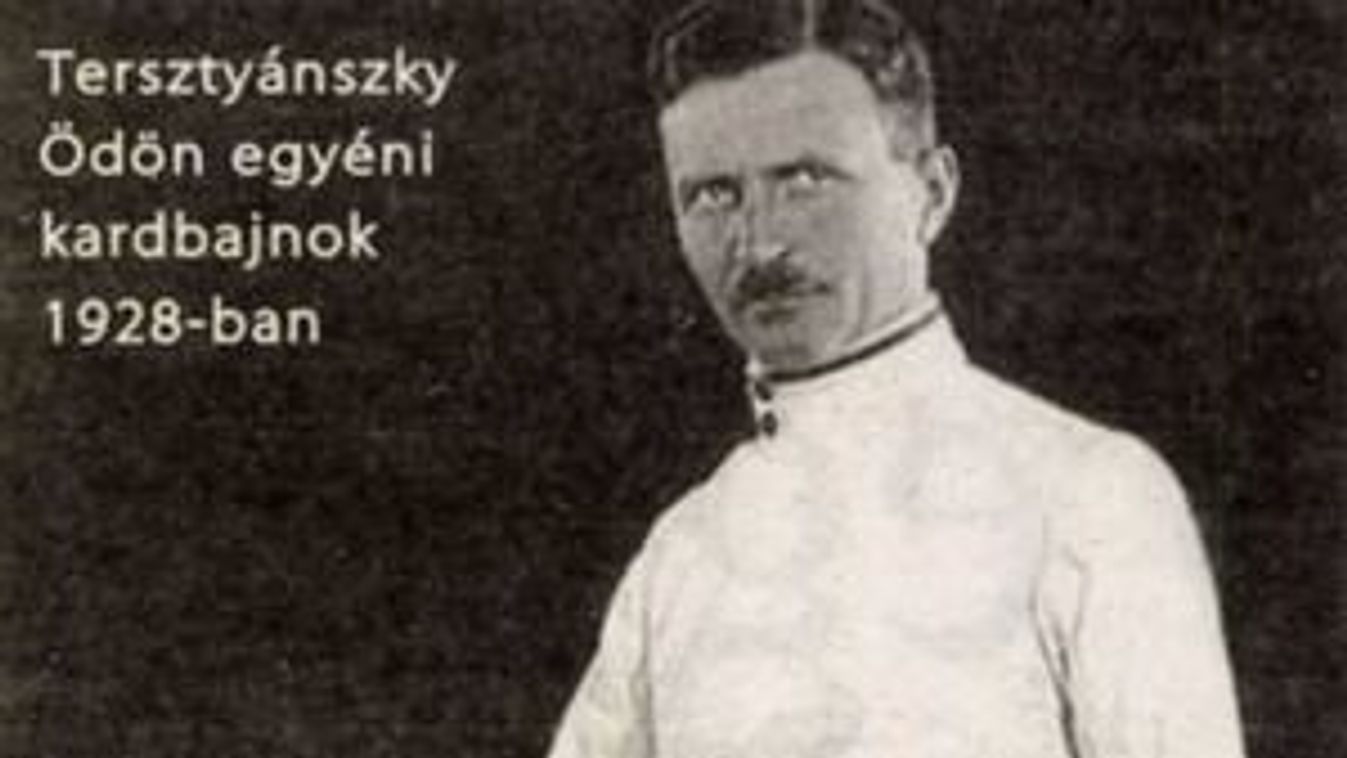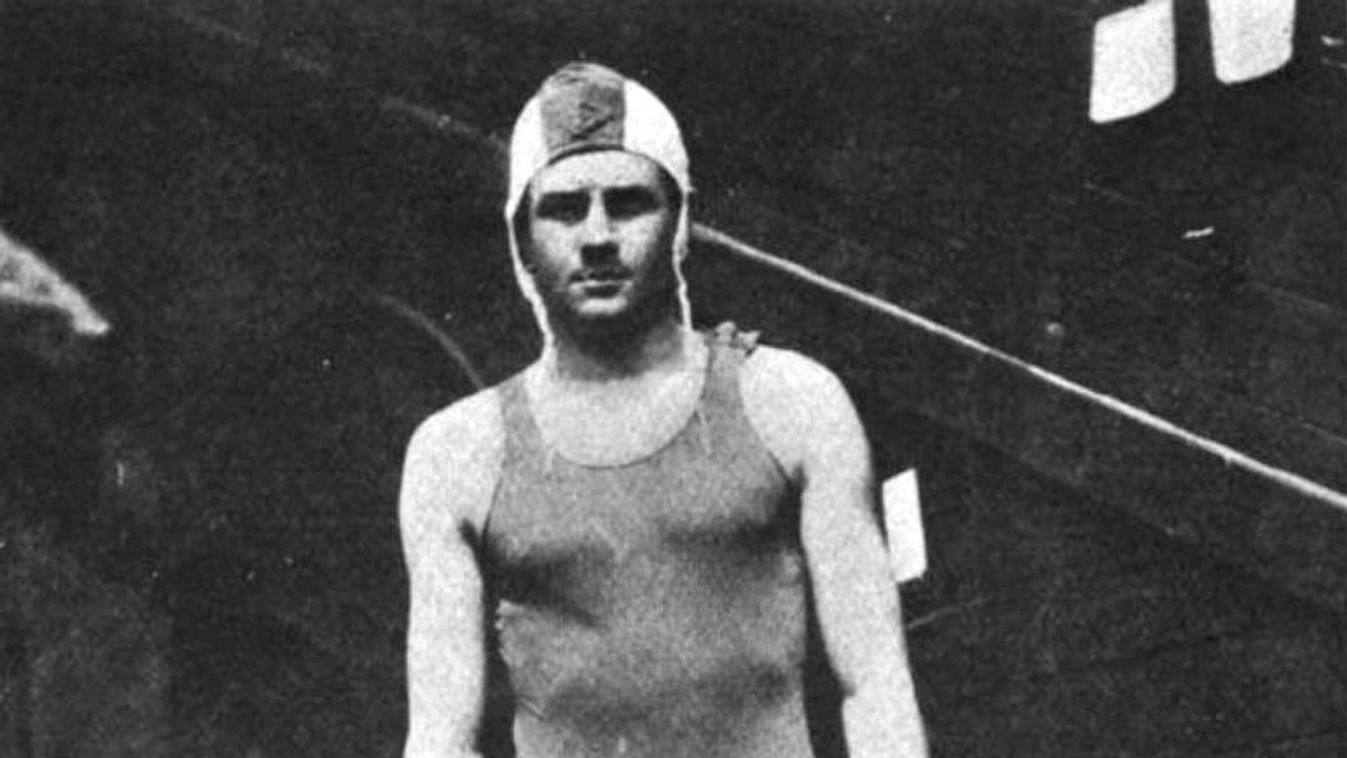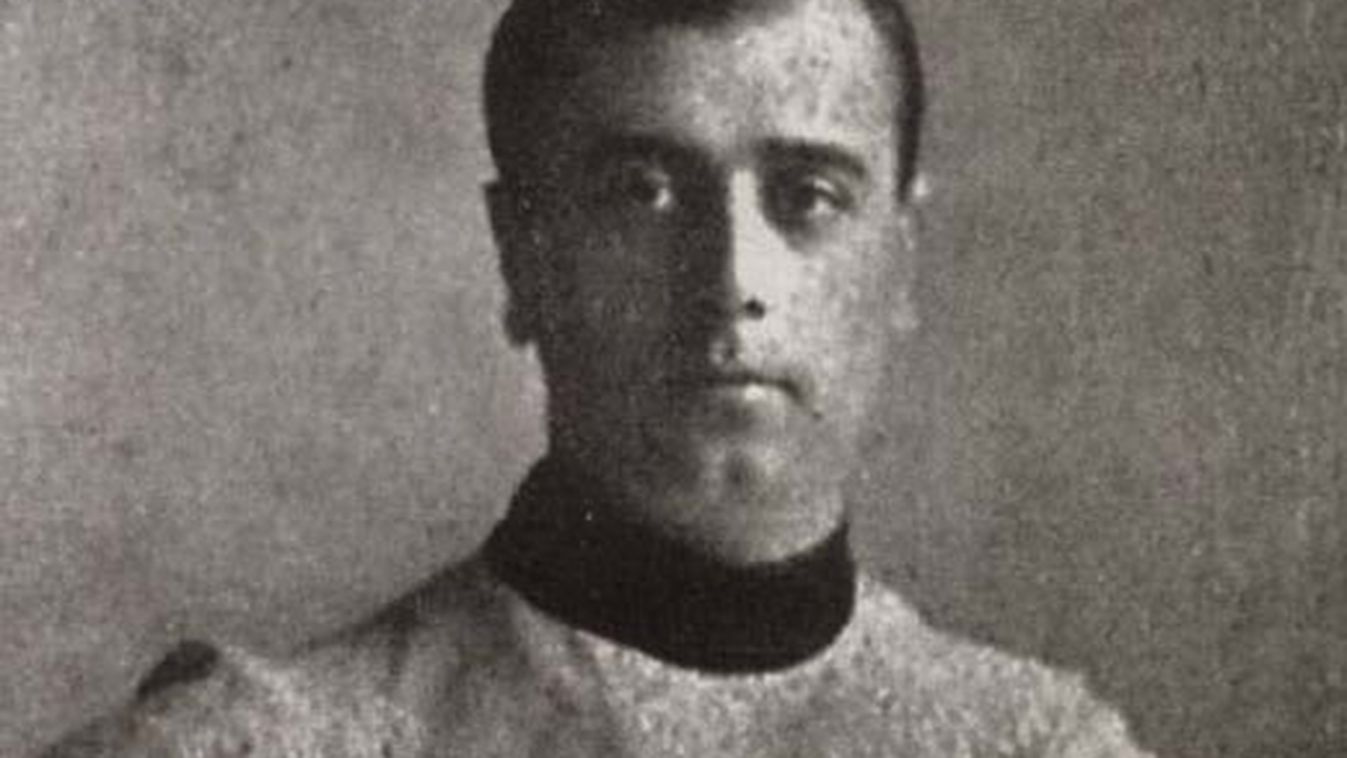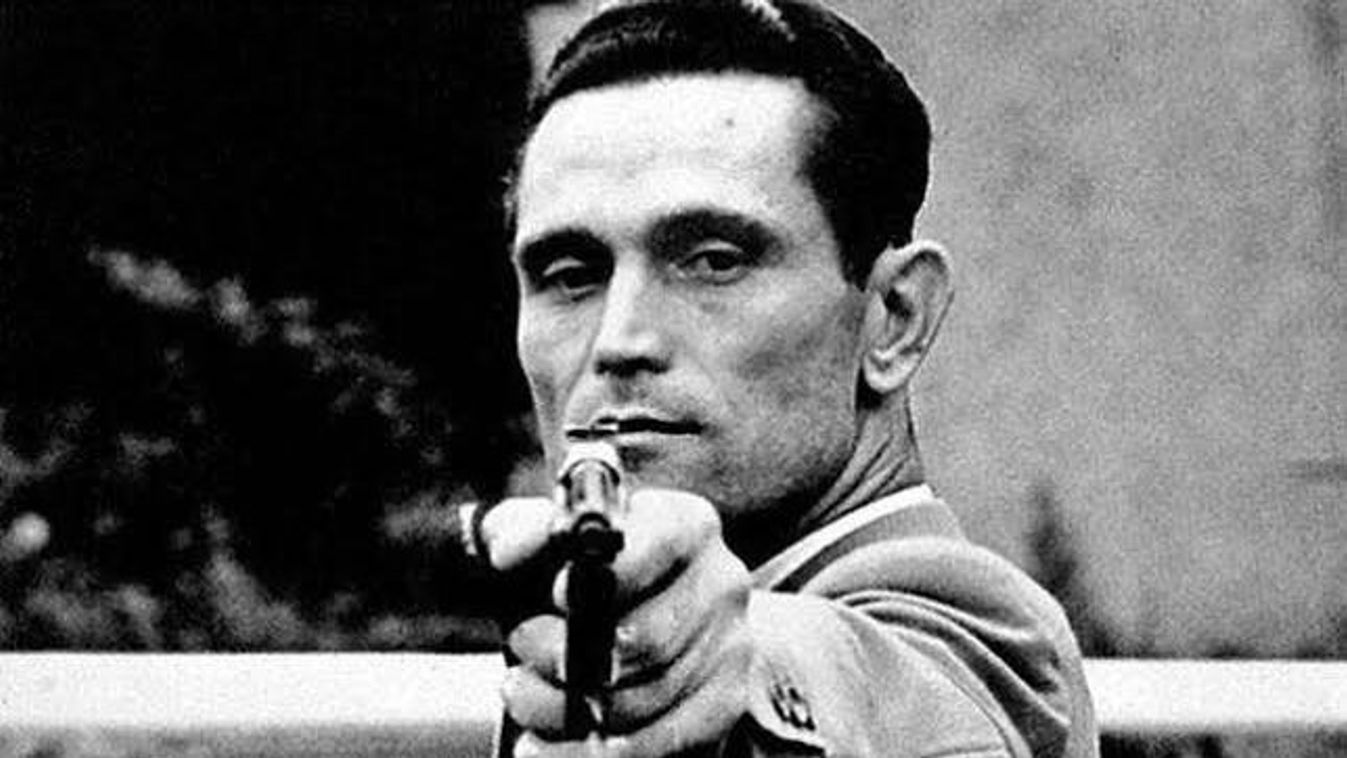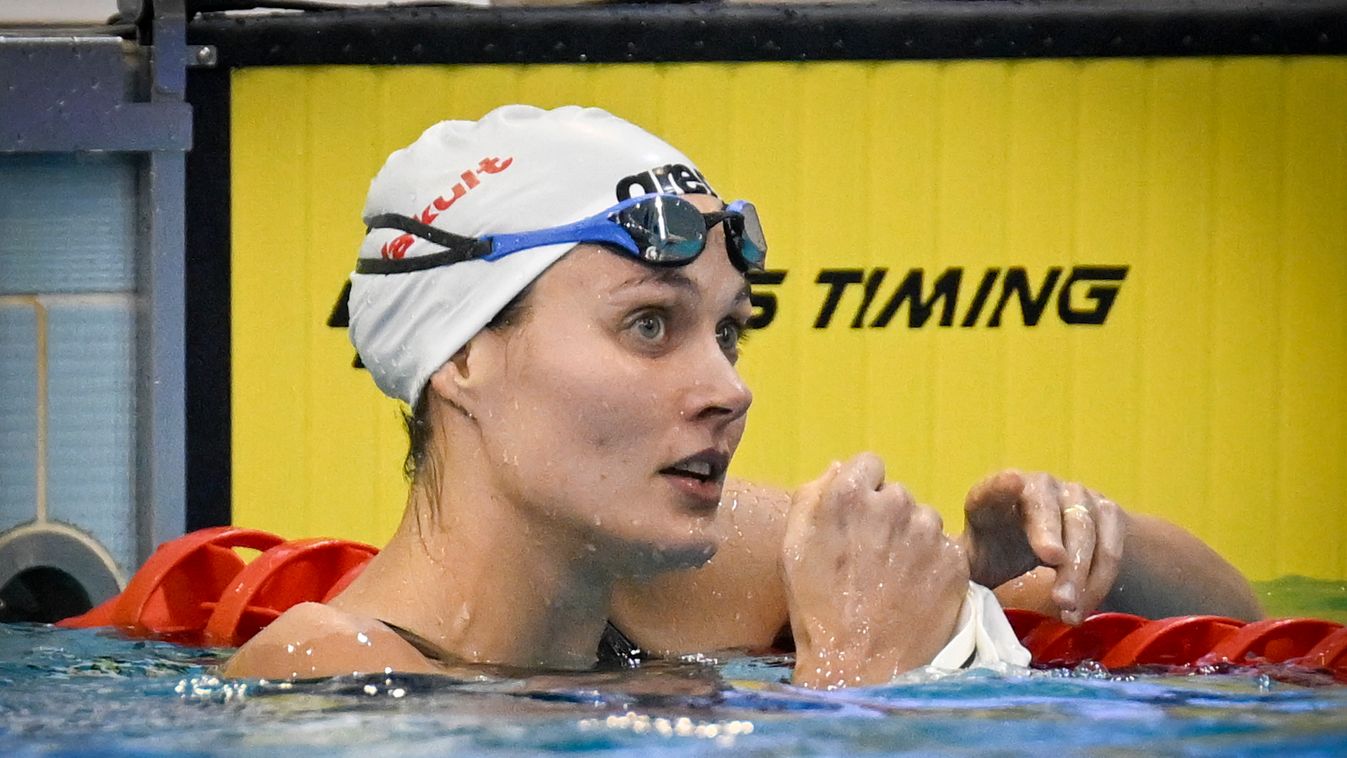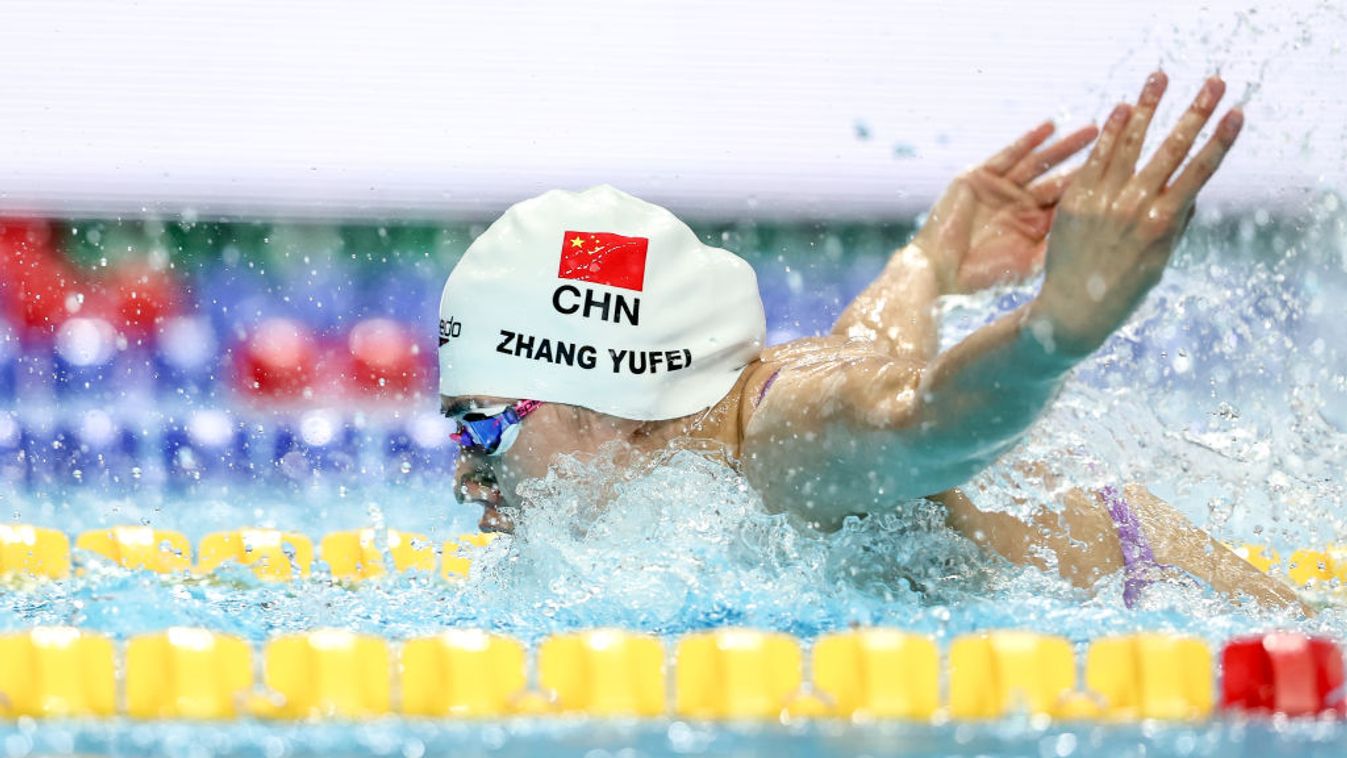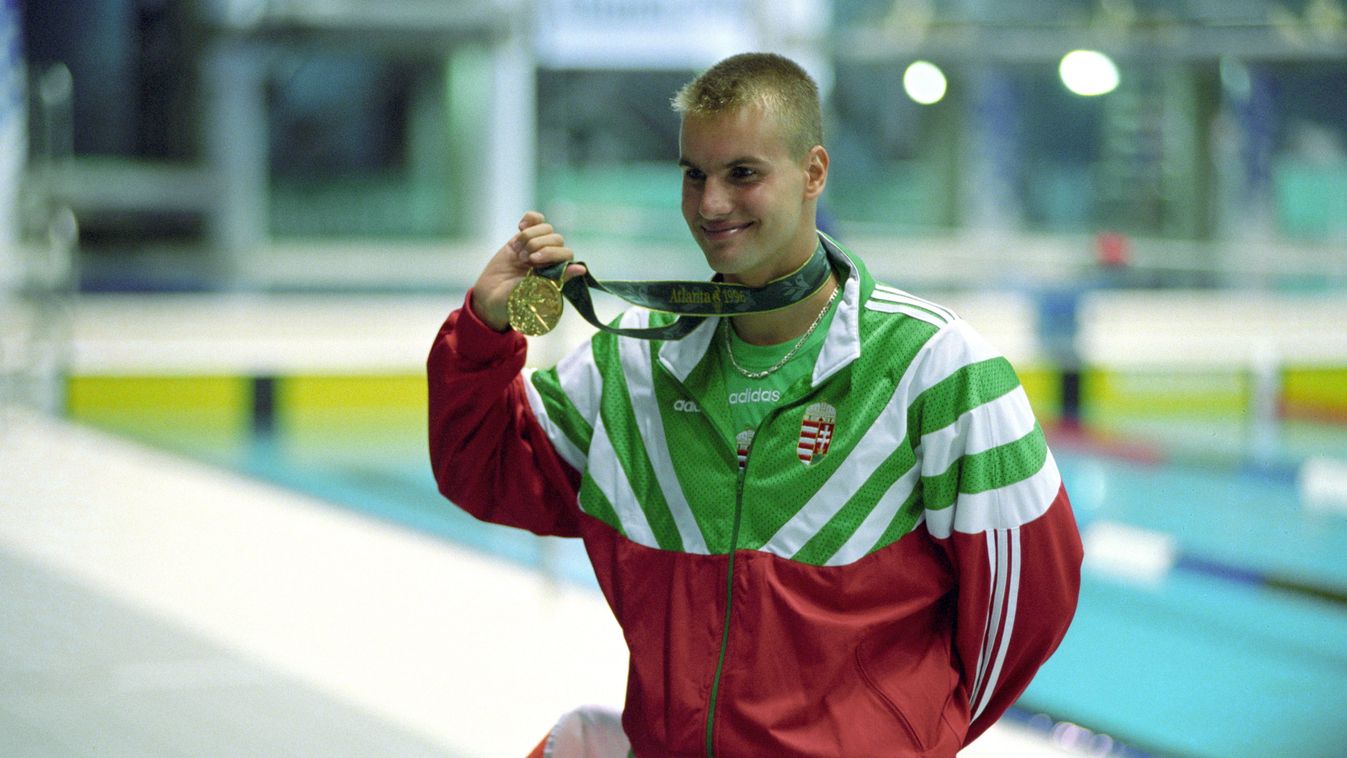Honoring the first – Hungarian gold at the Olympics
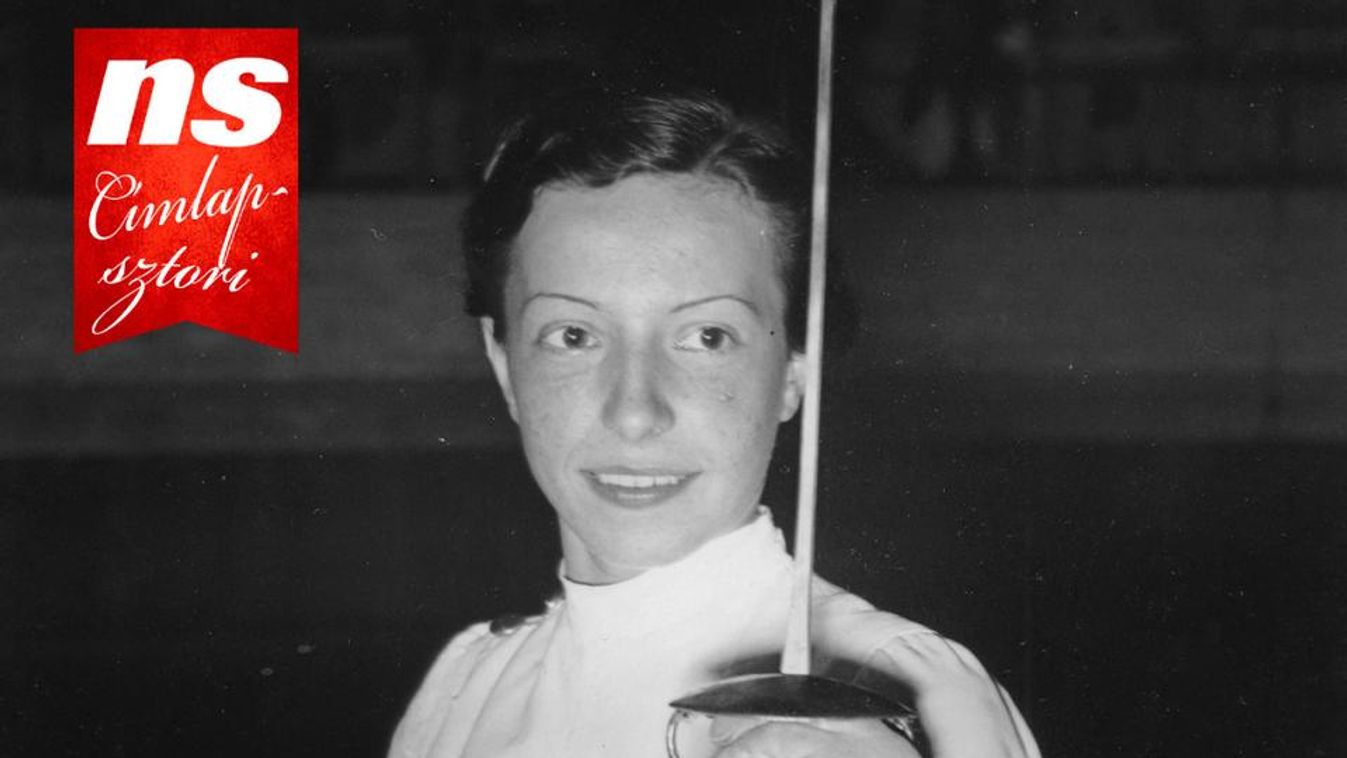
THE SHIVERING DOLPHIN
Alfréd Hajós, 1896
Alfred Hajós is not only Hungary's first Olympic champion but also its first double winner. He is a two-time gold medalist in Athens. The day before the Olympic swimming competitions, he wrote to his mother: "I should do something about the Americans," as they gained the most swimming successes. He threw himself into the ice-cold water with determination and learned that he had reached his destination after noticing the roar of about 40,000 spectators near the seabed. The "Zito i Ungheria!" ("Long live Hungary!") chant made him realize that he had won. He wrote of his first Olympic victory in his diary: "And on the highest mast of the judges' boat, our flag rose majestically. The band began playing the Austrian national anthem but fell silent after the first beats. In the silence that followed, the Hungarian anthem sounded from the lips of a few. Victory! Victory!" Hajós won the 100m in 1:22.2 minutes and swam the 1200m in 18:22.2 minutes. When he lost sight of Olympic champion Paul Neumann of the 500m in 1200, he almost gave up the race. Then, when the Austrian saw that the Hungarian was 20 meters ahead of him, he gave up. Hajós had to be pulled out of the sea due to shivering. The newspapers named him "The Hungarian Dolphin." When the king asked him at the reception where he had learned to swim so well, the Hungarian Dolphin replied, "In the water."
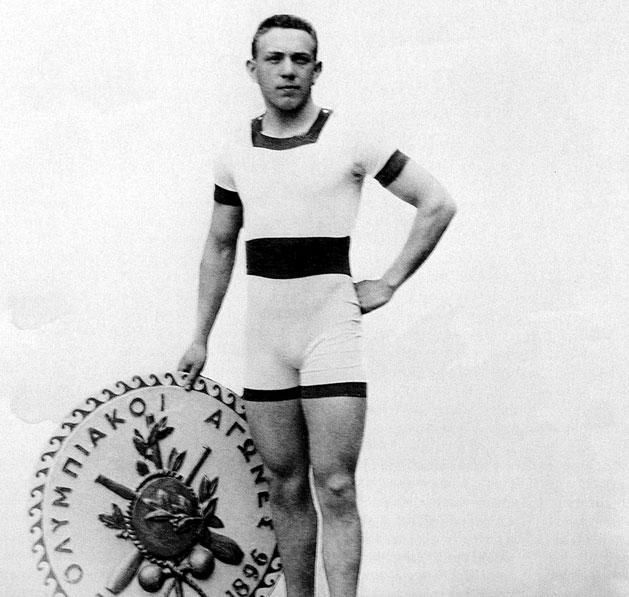
THE LEFT HAND KNEW...
Ilona Elek, 1936
Ilona Elek could have participated in the 1932 Los Angeles Olympics, but the Hungarian foil fencer was serving her ban. It happened that in 1930 she argued with the jury at a competition – she complained violently about a verdict against his sister Margit – for which she was banned for two years (!) and had to serve one. In Berlin (1936), already at the age of 29, she did well in the first group stage, but in the second stage, with two victories and three defeats, she reached the semifinals with only a better hit rate, from which she advanced to the final eight undefeated. She beat defending champion Ellen Preis of Austria 5:3 after 1:3, but Germany's Hedwig Haß beat her both in the second group stage and in the final. Although “Csibi” had six victories (she defeated 1928 gold medalist Helene Mayer of Germany 5-4), Elek's Olympic title depended on the last bout, the Preis-Mayer duel. If the German wins, there will be a tie between her and Elek, and if she loses, the Hungarian will be the Olympic champion. The bout was 4-4, and Nemzeti Sport wrote the following from Berlin: "After a long preparation, Mayer makes a last attack, but Preis' sustained hit sits death-proof." This is how Csibi won, who nevertheless approached her Austrian opponent, thanked her for her fair attitude and hugged her although they were far from being on good terms. Elek told Pesti Hírlap: "Please write that this is the second happiest day of my life." Attila Petschauer, who also won a gold medal and wrote for Pesti Napló, discovered that Csibi's first happiest day was the day of her marriage. The foil fencer defended her title in London in 1948 and won silver in Helsinki four years later. The lady, who was studying at the Academy of Music's singing department (not piano as it is usually written!) between 1923 and 1926, tried songwriting decades later, often with success. For example, at the 1971 dance song festival, Pál Szécsi sang her song "The Right Hand Doesn't Know." And indeed, Csibi fenced with her left hand.
EXPECTED SUCCESS
Men's water polo national team, 1932

Four years earlier, Béla Komjádi's team had traveled to the Amsterdam Games as potential winners, having previously won both European Championships. In the 1928 Games, in the decisive match against Germany, Hungary led 2-0, but the opponent was able to equalize until the end of the regular game and was in better shape in extra time to win the gold medal. The Hungarian team was still celebrating as if they won and was waiting for the next opportunity to prove the paper form. At the 1931 European Championships in Paris, no one was better than Hungary, so at the 1932 Los Angeles Olympics, the same burden was placed on Olivér Halassy and his team's shoulders as four years earlier. Only now has team Komjádi managed to handle the pressure. After defeating the defending champion Germany 6-2, they knocked out both Japan and the United States, and in terms of traditional team games, they won Hungary's first Olympic gold medal.
THEY BEAT EVERYONE
Men's saber team, 1908
The Hungarian fencers first participated in the 1908 London Olympics. The British capital was full of “firsts” in several respects: the sport, and saber within that, won the first-ever gold medal through Jenő Fuchs. Then, the saber team also became Olympic champions. Moreover, after the double win, the successful series continued until 1964. Hungary proved to be the best twice out of ten times in either individual or team saber!
The Ministry of War of the Austro-Hungarian Empire stated that among Hungary's best only military officers can stand on the piste in the individual competition, and in the team event, only civilians were given the opportunity to do so. Hungary proved to be the best. Five Hungarians (!) made it to the final eight in the individual event, and Jenő Fuchs adapted best to the circumstances. Between him and Béla Zulawszky, a tie broke with 6-6 victories; a single hit decided Fuchs' win. In addition to Fuchs' individual gold, the saber team (Jenő Fuchs, Dezső Földes, Oszkár Gerde, Péter Tóth, Lajos Werkner) also finished in first place. The competition brought a Hungarian triumph, the team beat the opponents one after the other: they defeated the Germans 9-0, the Italians 11-5, and in the final, the Czechs 9-7 after a 9-4 lead. In the latter match, Fuchs and Werkner won 3 while Gerde and Tóth won 2 and 1 bout, respectively.
WITH UNBROKEN MOMENTUM
Women's 4x100m freestyle relay, 1952
"I think we're all going to swim well today." None other than Ilona Novák, the first woman in the women's 4x100m freestyle relay at the Helsinki Olympics, said this before the final. Béla Rajki, the swimmers' captain, drew the team's attention to the safety exchange, meaning that no one should take any risks.
Judit Temes, whom Mária Littomeritzky replaced in the pre-heat, was first after the exchange and was leading when Rajki signaled with a sharp whistle during the second lap to hurry up. Éva Novák "swam with unbroken momentum and further increased the advantage," and the key swimmer was 100m Olympic champion Kató Szőke: she hit the finish line with a seven-meter advantage, and the girls swam a world record (4:24.4 minutes). Éva Novák, Judit Temes and Kató Szőke also swam better than gold medalist Szőke in 100 freestyle! Ilona Novák: "I think I didn't cause shame." Judit Temes: "I swam much better than in the individual competition." Éva Novák feared that after the 400 meters she would be more tired, but "I was in such a good physical and mental condition that I didn't feel any fatigue." Kató Szőke: "I am very happy to have won the second gold medal." Béla Rajki was satisfied: "This victory showed that our training method is right, and we have to continue on this path." Legendary coach Imre “Mesti” Sárosi said: "This is a big day for Hungarian women's swimming, and it should give us the strength to continue working. We, as coaches, feel the enormous prestige we have gained for our country's sport at this Olympics." And at that time little did he know that Valéria Gyenge would win gold in 400 freestyle the next day...
THEY PUT THEMSELVES TOGETHER
Men's short track speed skating relay, 2018
In some ways, the PyeongChang Winter Olympics was unlucky for our short-track speed skaters. The Hungarian competitors finished in places that are worth points more times than ever, but they just couldn't stand on the podium. After the penalties, not advancing and the unfortunate events in the individual competitions, it was feared that the delegation would return home from South Korea without a medal. There was only one chance left, the men's 5000m relay. In this event, to our great joy and relief, the quartet of Shaolin Sándor Liu, Shaoang Liu, Viktor Knoch, and Csaba Burján was a finalist. Although South Korea was expected to be the final winner. About halfway through the final race, one of the South Korean skaters slipped out, thus their chance passed, and the Hungarian medal became almost certain. But Shaolin Liu and the team were not satisfied with just that. First, his younger brother passed the Chinese rival after the penultimate tag, and then Hungary's key skater, the older Liu brother, easily overtook his Canadian opponent and roared across the finish line first. The Hungarian short track speed skating relay won Hungary's first-ever gold medal at the Winter Games.
"We had to put ourselves together in our heads, and well... we're the best! We didn't make a single mistake, everyone wanted to win so badly. I'm still speechless. At the last tag, I knew that if we had the Canadians ahead of us only, they would definitely just keep the lane and that I would definitely not be taken down by anyone. Because if they did, I would be the biggest loser. But I passed them anyways, and I cut the air at the end like no one else," Shaolin Liu said after the final.
"We sat in the room, and I said to the others, "How did we get here?" (...) I was sure that no matter where we finish in the rankings, I'm going to cry at the end. I was very exhausted mentally. Then I crossed the finish line and didn't feel anything. I didn't feel happy, I can't comprehend it yet, it will take a few days," added Viktor Knoch, who has since retired.
START-FINISH VICTORY
Shaoang Liu, 2022
 Compared to four years earlier, the Beijing Winter Olympics was off to a wonderful start. On the first day of the short track speed skating competitions, the Petra Jászapáti, Zsófia Kónya, Shaolin Sándor Liu, Shaoang Liu (John-Henry Krueger in the pre-heat) quartet immediately won a bronze. The soaring continued as Shaolin Liu won the men's 1000m final with a huge race, but the referee disqualified the Hungarian skater after analyzing the video footage. Shaoang Liu, who was originally fourth, took bronze, but what had happened there later affected the defending men's relay and the 1500m races. The only hope left to win a gold medal was the men's 500m. Although we had hoped that Shaolin Liu and/or Krueger would also make it to the final, only Shaoang made it.. fortunately, with the best time, he could start from the best position. The younger Liu brother competed sensationally all day, and the series did not falter in the final either. After the start, he immediately took the lead that won Hungary the first-ever individual Winter Olympic gold medal with a start-finish victory.
Compared to four years earlier, the Beijing Winter Olympics was off to a wonderful start. On the first day of the short track speed skating competitions, the Petra Jászapáti, Zsófia Kónya, Shaolin Sándor Liu, Shaoang Liu (John-Henry Krueger in the pre-heat) quartet immediately won a bronze. The soaring continued as Shaolin Liu won the men's 1000m final with a huge race, but the referee disqualified the Hungarian skater after analyzing the video footage. Shaoang Liu, who was originally fourth, took bronze, but what had happened there later affected the defending men's relay and the 1500m races. The only hope left to win a gold medal was the men's 500m. Although we had hoped that Shaolin Liu and/or Krueger would also make it to the final, only Shaoang made it.. fortunately, with the best time, he could start from the best position. The younger Liu brother competed sensationally all day, and the series did not falter in the final either. After the start, he immediately took the lead that won Hungary the first-ever individual Winter Olympic gold medal with a start-finish victory.
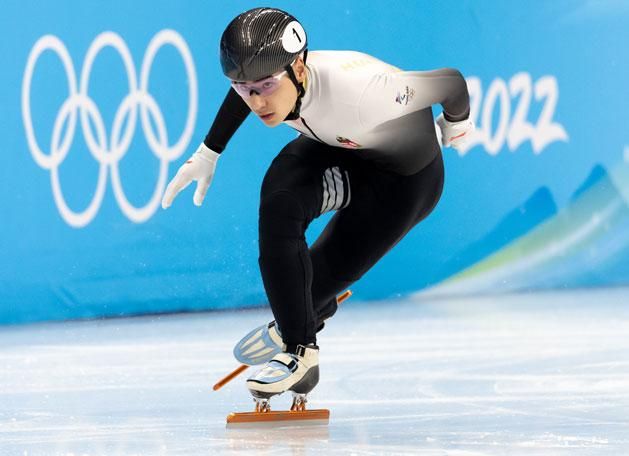
"I don't think my reaction shows what I've achieved or what I've been through. I'm still speechless, and I don't know when I'll comprehend it or when I can react to all of this. I know it's going to be an awfully long day, and I'm glad I've achieved that. When I woke up, I sensed that I was going to be an Olympic champion, and I hope that this success has given our little country an experience that we will never forget. I hope this success has brought together the people who have been rooting for us and been with us all along," said Shaoang Liu calmly.
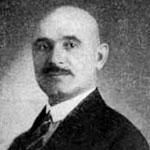
Translated by Vanda Orosz

Magyar Péter baklövésén röhög az internet

Ekkor nyit a budapesti Primark

Megváltoztak az érzéseik: fülig szerelmes a Házasság első látásra párja

Drága, nem halad és a környezetvédelmi haszna is megkérdőjelezhető – páros lábbal szálltak bele az e-autózásba

Mutatjuk, mit kell tenni most a málnával, hogy nyáron szuper termés legyen

Kuleba bevitte a kegyelemdöfést az elmenekült hadköteles férfiaknak + videó

Hugh Grant elárult pár titkot a közelgő Bridget Jones-filmről

Egykori fradistákkal lepné meg NB II-es csapat a Magyar Kupában a Ferencvárost

Óriási sportélmény és show lesz a kanadai hokiválogatott budapesti meccse - videó

Elbizakodottak voltunk, de sikerült visszafordítani – Bognár György a kupadöntőbe jutás után

Tímár Krisztián: Egy meccsen bármi megtörténhet, még a Fradi ellen is



